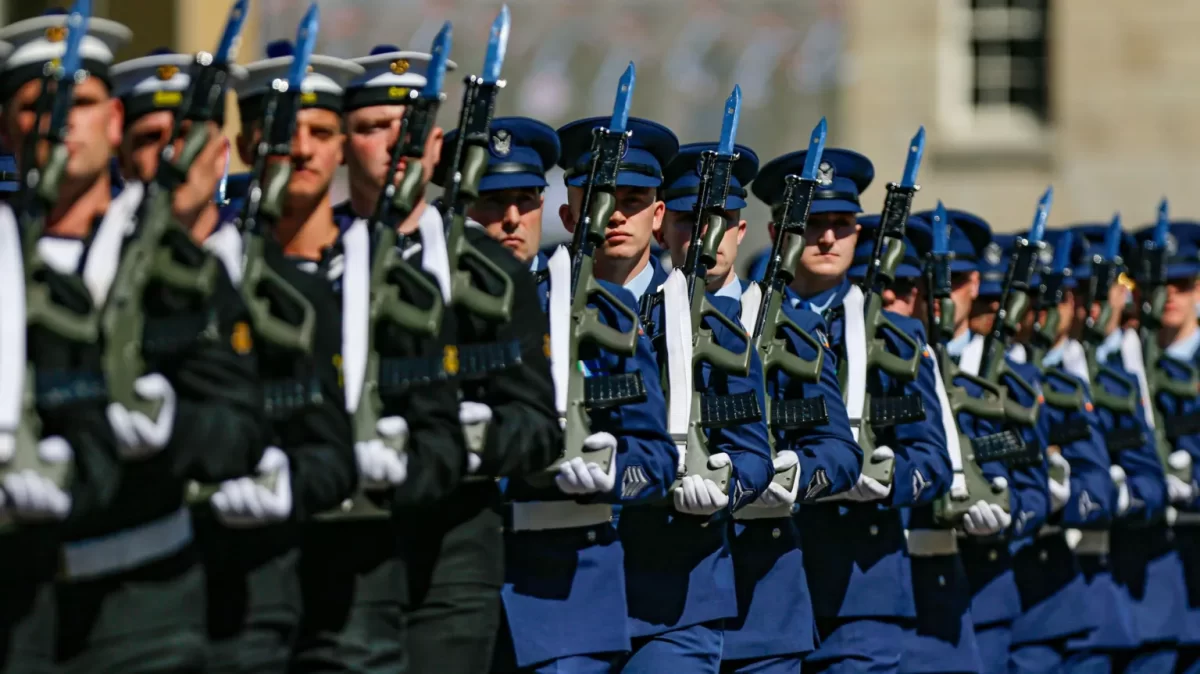Irish President Signs Defence Bill Following Council Meeting

Irish President Signs Defence Bill Following Council Meeting

Irish President Signs Defence Bill Following Council Meeting
In a significant move aimed at bolstering national security and modernizing the country’s defence infrastructure, Irish President Michael D. Higgins has signed the Defence Amendment Bill into law. The bill, which has been the subject of extensive debate and consultation, was finalized following a critical council meeting held at Áras an Uachtaráin.
The newly signed Defence Amendment Bill represents a comprehensive update to Ireland’s defence policies, addressing contemporary security challenges and ensuring that the Irish Defence Forces are well-equipped to protect the nation. Key provisions of the bill include increased funding for military equipment, enhanced cyber defence measures, and improved support for service members and their families.
“This bill marks a crucial step in ensuring that our Defence Forces have the resources and capabilities necessary to address the evolving security landscape,” President Higgins stated during the signing ceremony. “It reflects our commitment to safeguarding the nation and supporting those who serve in our armed forces.”
- Increased Funding for Modern Equipment: The bill allocates significant resources towards the procurement of advanced military equipment, including state-of-the-art surveillance systems, updated naval vessels, and cutting-edge communication technologies. This investment aims to enhance operational readiness and ensure the Defence Forces can effectively respond to a variety of threats.
- Enhanced Cyber Defence: Recognizing the growing importance of cybersecurity, the bill includes measures to strengthen Ireland’s cyber defence capabilities. This involves the creation of a dedicated Cyber Defence Unit within the Defence Forces, tasked with protecting national infrastructure and responding to cyber threats.
- Support for Service Members: The bill also introduces improved support systems for service members and their families, including enhanced healthcare services, mental health resources, and housing assistance. These measures aim to ensure the well-being of those who dedicate their lives to national defence.
- Strategic Partnerships: The bill emphasizes the importance of international cooperation and strategic partnerships. It includes provisions for increased collaboration with allied nations and participation in joint training exercises, ensuring that Ireland remains aligned with global defence standards and practices.
The council meeting, which was attended by senior government officials, defence experts, and representatives from the Defence Forces, played a pivotal role in finalizing the bill. Discussions during the meeting focused on the current security environment, the specific needs of the Defence Forces, and the implementation strategy for the new measures.
Minister for Defence Simon Coveney, who chaired the meeting, highlighted the collaborative effort that went into crafting the bill. “This legislation is the result of extensive consultation and input from a wide range of stakeholders,” Coveney said. “It addresses both the immediate needs and long-term strategic goals of our Defence Forces.”
The signing of the Defence Amendment Bill has been met with a positive response from various quarters. Defence analysts have praised the bill for its forward-looking approach and comprehensive coverage of key security issues. “This is a well-rounded piece of legislation that addresses the multifaceted nature of modern defence,” commented Dr. Aoife McMahon, a leading defence analyst. “It positions Ireland to better handle both traditional and emerging threats.”
Service members have also welcomed the bill, particularly the provisions aimed at improving their quality of life. “The enhanced support for service members and their families is a significant step forward,” said Sgt. Liam O’Connell of the Irish Defence Forces. “It shows that the government values our contributions and is committed to our welfare.”
With the Defence Amendment Bill now signed into law, the focus shifts to its implementation. The government has outlined a phased approach, with priority given to the most critical areas such as cyber defence and equipment procurement. A detailed implementation plan is expected to be released in the coming weeks, outlining timelines and specific actions.
The successful implementation of the bill is expected to significantly enhance Ireland’s defence capabilities, ensuring the nation is well-prepared to face current and future security challenges. As Ireland continues to navigate a complex global security environment, the Defence Amendment Bill stands as a testament to the country’s commitment to peace, security, and the well-being of its citizens.
Do you find Tmaq Media useful? Click here to give us five stars rating!




















